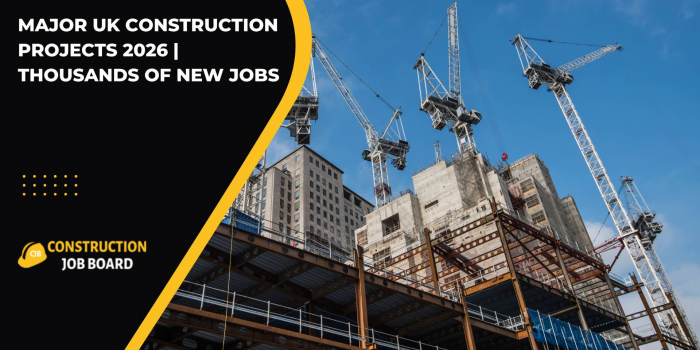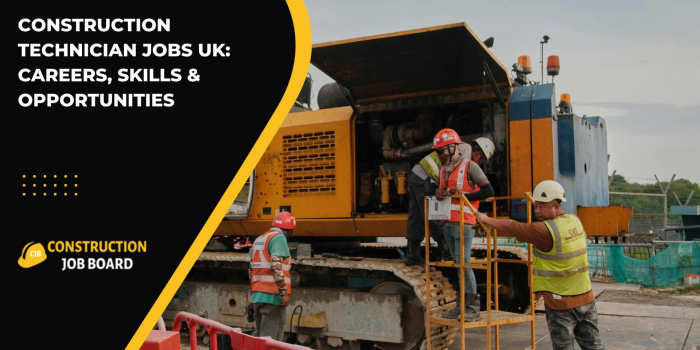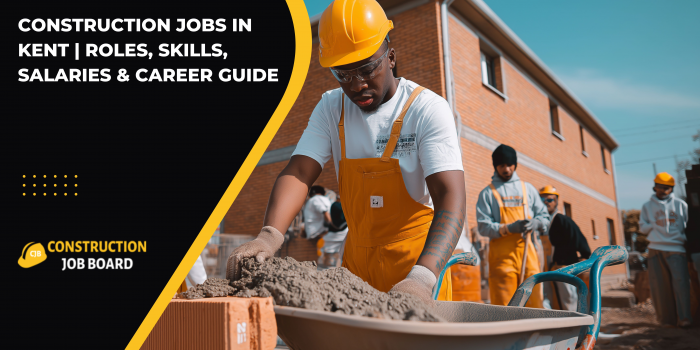Tips for Effective Project Planning and Scheduling in Construction Management
20/06/2024

Effective Project Planning for Construction Jobs in the UK
Effective construction management incorporates two key elements: proper planning and scheduling of projects. These ensure timely completion within budget and quality standards. In this guide, we’ll share practical tips on construction project planning and scheduling that help project managers and teams across the UK construction jobs sector achieve success.
Importance of Project Planning and Scheduling
Planning and scheduling are the backbone of every construction job. Planning outlines project goals, required resources, and the methods to achieve them. Scheduling defines task timelines, ensuring coordination and communication at every stage of a project. Together, they enhance productivity and promote efficiency across different construction recruitment teams.
Key Construction Project Planning Tips
1. Set Clear Objectives and Goals
Start by setting clear, measurable goals using the SMART framework. Defining what success looks like helps site managers, labourers, and supervisors stay aligned—whether you’re managing site manager jobs or assistant site manager jobs.
2. Assess Resources Thoroughly
Evaluate available resources—labour, materials, and equipment. Understanding your manpower helps allocate the right talent for each task, from labourer jobs to quantity surveyor jobs. Using digital project management tools can track workloads and availability more efficiently.
3. Prepare a Detailed Project Plan
A solid project plan includes timelines, dependencies, and communication protocols. It also provides a clear structure for risk management, procurement, and quality assurance—key areas for anyone managing construction jobs UK.
4. Encourage Collaborative Planning
Engage all stakeholders—construction managers, engineers, and crew members—in decision-making. Collaboration builds ownership and accountability, a must-have for successful construction jobs near me and large-scale projects alike.
5. Use Advanced Planning Tools
Leverage Gantt charts, Critical Path Method (CPM), and Building Information Modeling (BIM). These tools simplify scheduling for everyone, from telehandler jobs to plumbers mate jobs, ensuring every trade stays aligned on the same timeline.
Best Practices for Construction Project Scheduling
1. Build a Realistic Schedule
Set achievable timelines and include buffer periods for unforeseen delays such as weather or supply issues. This approach helps both construction manager jobs and on-site teams deliver efficiently.
2. Prioritise and Arrange Tasks
Identify critical activities and sequence them efficiently. Gantt charts help visualise dependencies—essential for traffic marshall jobs and site supervisors managing large teams.
3. Monitor Progress Consistently
Track project progress regularly with KPIs and milestones. Continuous monitoring ensures that even electrical improver jobs and subcontracted roles stay on schedule.
4. Maintain Strong Communication
Consistent communication between all stakeholders keeps everyone updated about timelines and changes. This is vital for maintaining coordination in all jobs in construction.
5. Apply Risk Management Strategies
Recognise potential risks early—labour shortages, supply issues, or design changes—and prepare mitigation strategies to keep the project running smoothly.
6. Use Agile Practices
Adopting Agile methodologies promotes flexibility and responsiveness in construction projects. Regular reassessment and adaptability are what make UK construction teams stand out.
Effective Construction Project Management
Proper project management balances planning, scheduling, and real-time monitoring. Following these tips ensures better productivity, fewer delays, and overall project success. Whether you’re overseeing construction jobs in the UK or exploring opportunities in construction recruitment, these practices are key to career growth and operational excellence.
Conclusion
Effective planning and scheduling form the core of every successful construction job. Clear goals, detailed planning, collaboration, and modern tools help construction managers deliver top-quality results. For job seekers, the Construction Job Board offers a wide range of construction jobs UK, from labourer jobs and site manager jobs to quantity surveyor and electrical improver jobs.
Explore the Construction Job Board today to find the best construction jobs near me and advance your career in the growing UK construction industry.






















































































































































